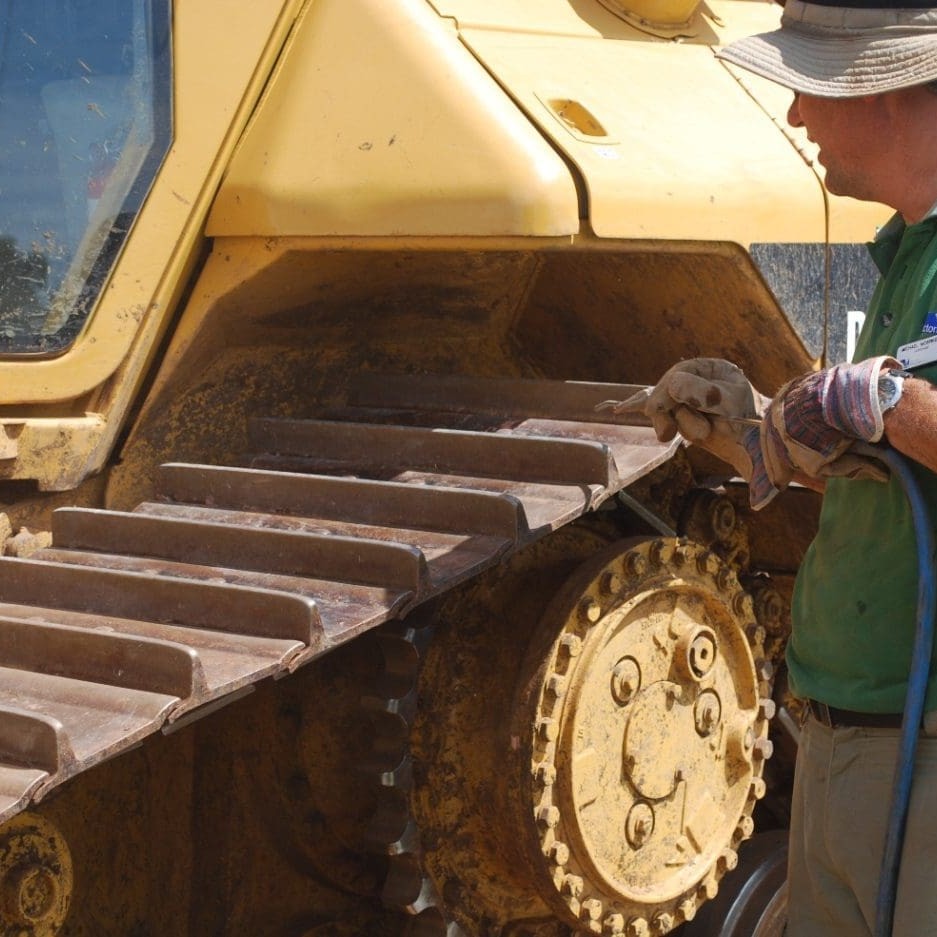 The smallest of seeds can be carried far and wide by vehicles and machinery, potentially spreading weeds to farms, grazing and bushland around Australia.
The smallest of seeds can be carried far and wide by vehicles and machinery, potentially spreading weeds to farms, grazing and bushland around Australia.
Weeds nationally cost more than $4 billion a year in lost agricultural production and control costs, as well as immeasurable damage to the environment.
Detecting and treating invasive plants while they still occur at low abundance and with limited distribution provides the best opportunity to prevent wide-scale establishment. It also represents the stage of invasion at which a rapid response results in cost effective management.
The National Weed Spread Prevention Initiative (NWSPI) was established in 2011 by the Federal Government's Department of Agriculture, Fisheries and Forestry. The initiative seeks to reduce weed spread through early detection and rapid response by encouraging knowledge sharing and the adoption of nationally consistent approaches in weed management.
Project officer for the NWSPI, Dr Matt Sheehan, said a key priority of the initiative was to improve linkages and support networks between all weed managers, including industry.
“There is a need to increase education opportunities within industries on weed risks and the legislative responsibilities they have to manage weeds, as well as to provide tools to help industry reduce their impacts,” Dr Sheehan said.
“Partnerships that include industry can reduce the spread of weeds and increase the likelihood of early detection and rapid response. The initiative also provides an opportunity for us to recognise and promote the numerous examples we have of industries being proactive in weed spread prevention.”
The Civil Construction Industry provides one such example. The Civil Construction Federation (CCF) is the peak body representing civil engineering and earthmoving contractors across Australia. With 2000 members, the CFF represents a workforce of about 350,000 people Australia-wide. In rural areas civil contractors work on a wide range of projects including the development and maintenance of roads, dams and turkeys nests, bridges, contour banks, and commercial developments.
Environmental field officer for CCF, Wayne Huntley said civil construction and earthmoving activities presented a high risk of weed contamination and subsequent spread.
To address this, the CCF has developed an industry-wide guide for machinery hygiene that details methods for detecting and removing contaminant plant parts, seeds and soil from machinery.
“The development of the guide has been an important and proactive step in preventing the spread of weeds to new areas, be that in agricultural or environmentally sensitive areas,” Mr Huntley said.
“By adopting this guide and applying effective machinery hygiene methods, contractors help to reduce the spread of invasive plants.”
The Machinery Hygiene Guide and an online e-learning tool were developed in partnership with the Victorian Department of Primary Industries, with support from the Association of Land Development Engineers (ALDE), VicRoads, and Victoria’s Department of Sustainability and Environment. The DPI-CCF partnership worked to develop best practice methods of weed spread prevention (for both strategic and on-the-ground activities).
Dr Sheehan said the guide provided just one example of the types of tools that could be developed to reduce weed spread.
“It also illustrates how the development and effectiveness of such tools can benefit through partnerships,” he said.
The NWSPI seeks to raise the awareness of the importance of weed spread prevention, promote the achievements of industries such as CCF, and encourage other industries who which to adopt a proactive approach to tackle weed spread.
- Industries interested in developing a weed spread prevention or weed management initiative should contact Dr Matt Sheehan on 0427 722 793 or email matt@wildmatters.com.au.
- To participate in the CCF web learning tool and view video demonstrations of best practice go to http://civiltrain.trainingvc.com.au/. New visitors must register with a username and password to participate in the training module.
